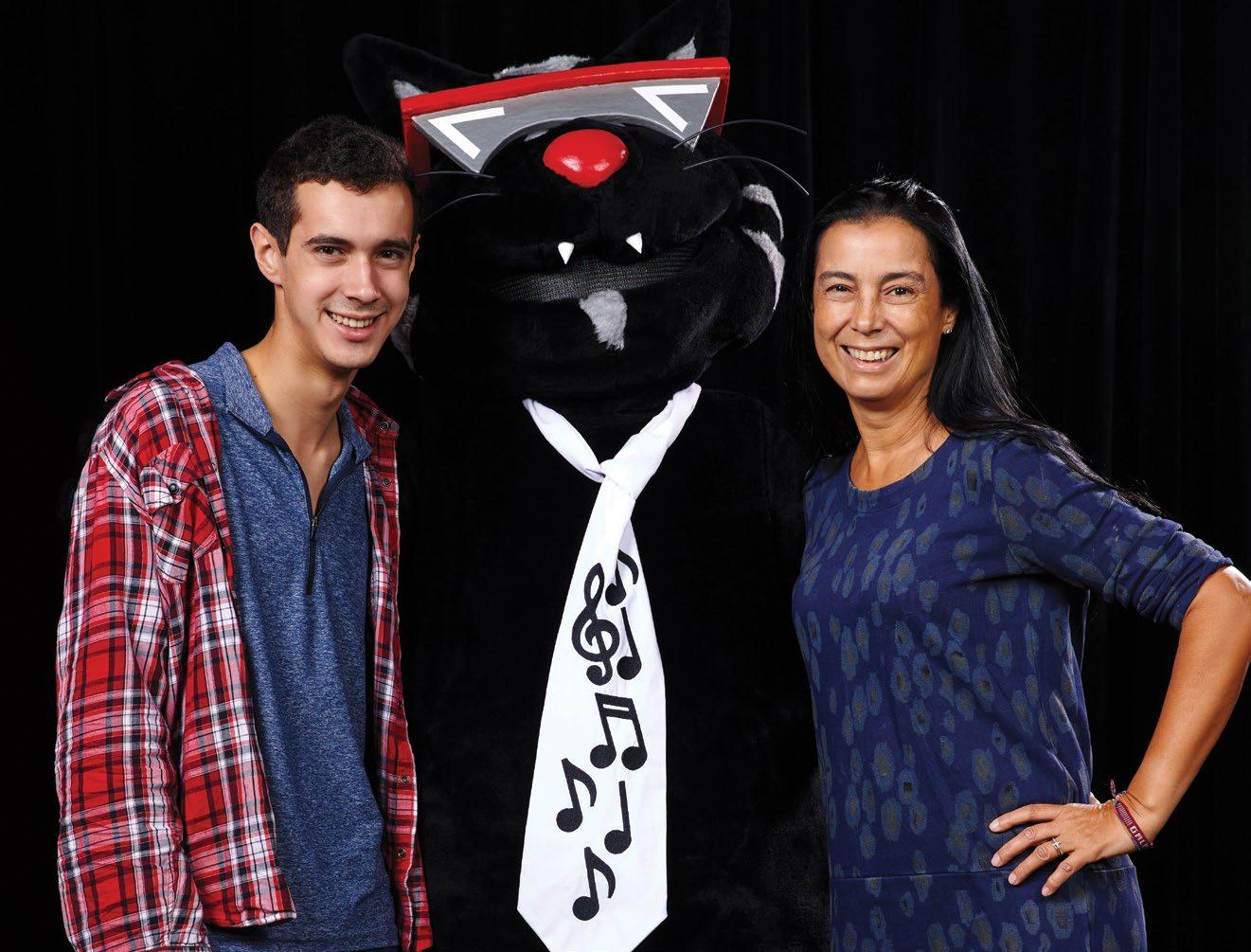Q&A
FROM THE SUBURBAN CLASSROOM TO THE ROCK CLUB, ALUMNA RACHEL JAYSON BREAKS THE MOLD Boston Conservatory alumna Rachel Jayson (B.M. '09, viola, M.M. '09, music education), a high school music teacher in Lexington, Massachusetts, isn’t your stereotypical suburban teacher. As an educator and conductor of Lexington High School’s chamber orchestra, she is committed to exposing her students to a broad and challenging repertoire, including new works that she commissions from local composers. As an artist, she performs in Boston-area avant-garde rock and jazz bands and designs clothing and wearable art. Jayson reflects on her artistic journey and her Conservatory education.
WHAT ROLE DID MUSIC PLAY IN YOUR LIFE GROWING UP?
As a kid, I used music as an escape. In middle and high school, I joined every orchestra, jazz band, community theater pit orchestra, and local college ensemble that would have me. Music gave me structure and purpose, and trained me to focus. In a chaotic home, I could be “alone” with my instrument even when surrounded by distractions. It gave me a way to connect with others beyond my peers and social circles, and helped me envision a life beyond my present.
WHEN DID YOU BECOME INTERESTED IN BOTH MUSIC EDUCATION AND PERFORMANCE?
In high school, when asked about career prospects, I would have answered “I think I’d like to be a music teacher or a lawyer when I grow up, but lawyers seem generally less happy. I’m going to be a music teacher.” I had a knack for persuading people, an enthusiasm for explaining things, and I loved music, so it seemed like a natural career path. Performance was a different journey. I loved playing in orchestras and ensembles, and knew I wanted it to be a major part of my life, but I couldn’t see myself as a full-time orchestral musician.
6 | STAGES
HOW WOULD YOU DESCRIBE YOUR ARTISTIC VOICE AND POINT OF VIEW?
Visually, my artistic voice involves a lot of saturated color, asymmetry, bright and bold patterns, and drama. Musically, I’m pretty much the same. My musical aesthetic tends to lean toward darker, more saturated sound (I am a violist, after all), driving rhythms, and experiments with timbre. I’m interested in stretching the sound of the viola in a rock context.
HOW DID YOUR BOSTON CONSERVATORY EDUCATION INFLUENCE YOUR CAREER AND TEACHING STYLE?
My Boston Conservatory education made me the teacher I am today. I came to the Conservatory specifically because of the reputation of the music education graduate program, and credit my success as an educator to the program. I was given incredible opportunities, such as being able to visit many music classrooms in Boston, and being placed with wellmatched and influential mentor teachers for my prepracticum placement. Between the deep thinking, analysis, broad exposure to methodologies, and classroom strategies I learned in the program, I felt completely ready to move into the classroom. In fact, my student teaching placement went so well that when a small position opened up after I graduated, the chair of the department called me to see if I was interested. Ten years later, I’m still in Lexington.
WHAT HAS TEACHING AT LEXINGTON HIGH SCHOOL TAUGHT YOU ABOUT THE STATE OF MUSIC EDUCATION?
I’m so lucky to teach in a community that supports the arts as much as Lexington does. I get to work with some of the most talented and motivated students around. Because of this, I’m constantly pushing my students not just with challenging repertoire, but with the widest









